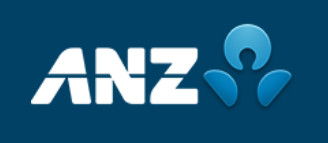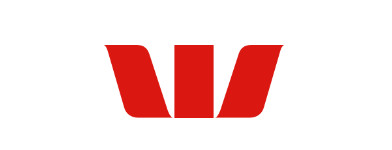Disclosure: Privacy Australia is community-supported. We may earn a commission when you buy a VPN through one of our links. Learn more.
Best Small Business Accounts

Generally speaking, small business accounts tend to be a fairly crucial part of any successful enterprise — regardless of your industry or sector.
Still, there are plenty of options out there for bank accounts in Australia. So, throughout this article, we’ll be covering some of the key fundamentals you should be looking out for — how they work and what features you can expect when using one.
Lastly, we’ll walk through our top six choices and why they might be the best business bank account for you, too.
Table of Contents:
- What Are Small Business Accounts
- How Do Small Business Bank Accounts Work
- Pros and Cons of Small Business Bank Accounts
- Reviews
- 1. NAB Business Everyday Account
- 2. Zeller Transaction Account
- 3. ANZ Bank Business Transaction Account
- 4. Commonwealth Bank Business Transaction Account
- 5. Wise Business Account
- 6. Westpac Business One Account
- Final Thoughts
- FAQs
What Are Small Business Accounts? 🔎️
Put simply, small business accounts are just a specialised type of bank account that specifically caters to the kinds of financial needs required of these businesses.
Unlike personal bank accounts, which will always tend to focus more on your everyday individual needs, a small business account focuses on more business-related activities — allowing you to separate your personal finances from any kind of transaction to do with your company, for instance, which is essential for record-keeping or general tax purposes.
How Do Small Business Bank Accounts Work? 🤔️
As we’ve just mentioned, a small business bank account works just like a regular bank account, but it comes with a bunch of different tools and services that are made specifically to help businesses.
This might sound a little bit vague upon first read, so throughout this next section, we’ll be taking a closer look into some of the details and what little things make these accounts unique:
Streamlined Transactions
To kick things off, and this is probably one of the most valuable features you’re pretty much guaranteed, small business accounts are usually always going to let your business transactions flow a little bit easier.
Now, the specific tools you can expect aren’t always going to be the same (as they’ll usually vary depending on which provider/tier of subscription you’ve opted for), but essentially, all of these business accounts come with features that make sending and receiving payments from your clients a lot simpler — whether it’s with things like invoicing solutions, attaching a payment gateway to your website, or even just extra merchant services, the aim here is to help you get paid on time.
Business Credit Lines
It goes without saying that the primary focus of any small company out there is to get off the ground floor and ultimately expand, but this is obviously easier said than done — especially when you compare the number of funds available to invest in your small business’ growth to the amount that a large company would have.
So, in essence, these accounts are going to give you a helping hand when it comes to this by providing you with your own line of credit — that’s not to say you’ll gain access to millions of dollars in loans (you’ll need to prove your business’s creditworthiness first), but regardless of how modest the credit line is, they’re going to help you secure loans you previously wouldn’t have been able to.
Comprehensive Reporting
Rather than trying to work it all out by yourself or even hiring some kind of accountant to do it for you, all the best business bank accounts come with reporting tools that’ll give you some understanding of how your business has been performing — something that’s especially useful for small business owners who are unsure how best to delegate funds to different parts of their company.
Whether it’s with balance sheets, profit and loss statements, or just being able to look at all of your transaction histories, it’s definitely worth signing up for one of these accounts — just so you can move your accounting online rather than doing it with pen and paper, if for no other reason.
Low Monthly Fees
In comparison to your average personal bank account, you’ll generally find that small business bank accounts are a lot more reasonably priced when it comes to the monthly fees you’ll need to pay.
Still, the specific kinds of charges that make up the overall monthly fees aren’t dissimilar, as they more or less cover all of the same things — account maintenance and being able to access certain features and support, for instance.
Having said that, the best bank account for businesses is one that’s probably going to be on the pricier end of the spectrum, so although there are options out there for a steal, it might be worth investing in something you know is going to perform well — we’ll come onto this later in the article, though.
Online Accessibility
Generally speaking, the days of performing all of your banking and accounting using in-person/physical methods are relatively antiquated now, so if you’re still doing things this way, you’re not acting in the most efficient way for your business.
Fortunately, though, one of the key features of small business accounts is the online banking services they offer, ultimately letting you manage your finances from pretty much anywhere where you can access the internet.
From here, you’ll, of course, then be able to do things like monitoring your account activities or simply just send/receive money from people.
Integration With Business Tools
Lastly, from apps that let you track all of your business expenses to ones that’ll help you prepare for tax season, most small business accounts (at least the ones we’ll be covering in the review section later) tend to integrate pretty seamlessly with other kinds of business-related software — naturally saving you a bit of time and helping you stay organised.
Pros and Cons of Small Business Bank Accounts
Before we get into the reviews, it’s important to cover both sides of whether having one of the business bank accounts is actually worth it — especially if you’re going to invest money into them.
So, with the basic fundamentals of how these bank accounts work out of the way, let’s explore some of the advantages and disadvantages.
Benefits ✅️
Enhanced Financial Management
These accounts are generally excellent in terms of the different financial management aspects they can cover — whether it’s expense tracking, setting up an automated payroll, or categorising your transactions, you’re gaining a much more comprehensive overview of your business’s overall financial health with these platforms.
Ultimately, it’ll make it a lot easier to monitor and keep tabs on all your expenses, so you’re becoming more efficient at budgeting, too.
Separation of Personal and Business Finances
Possibly the most beneficial aspect of small business bank accounts in the long term is that you’re clearly distinguishing any of the finances involved in both your business and personal life.
From complicated tax reporting to generally mixing all of your funds up, you’d always want to avoid doing this, so obtaining a separate account will make it much easier to accurately track your business’s expenses and income.
Access to Business Credit
Oftentimes, you’ll find that small business accounts come with some sort of business credit line as an additional offer, and while this is generally useful, we’ll explain a couple of the downsides in the next section.
Having said that, business credit can be a huge help for anyone who needs some extra funding for things like growth or unexpected expenses, so it can definitely provide some relief knowing you can maintain your cash flow a bit easier.
Easy Payment Processing
It’s far more streamlined to conduct all of your business transactions through your business account, too, as they usually offer various kinds of tools for invoicing — ultimately helping you make and receive payments a lot easier.
Drawbacks ❌️
Monthly Fees
Though some of the options we’ll be covering later on don’t have any account fees, it’s worth noting that small business bank accounts, in general, often have these. Although they’re usually fairly reasonable — around $10 per month — this is a fee that can obviously stack up if you’re a business owner who already has a tight budget.
As such, keep the monthly fee structure of any given account on our list in mind so you know if you’d be able to afford it.
Limited Branch Access
The majority of these businesses tend to be based online primarily, so don’t expect the same level of in-person branches or even customer service support that you’d find with personal bank accounts — something to consider if you’d ever need immediate assistance with a particularly complex issue of financial matter you need to deal with
Credit Requirements
If you ever need the business credit lines these account providers like to offer, you’d generally need to have a high credit score or financial history.
Naturally, this can be pretty complicated for any newer businesses or anyone else that doesn’t have the greatest credit score and would mean that you’re not getting the most out of your account.
Account Maintenance
Generally speaking, it can be slightly more complicated for small business owners (in comparison with people who own personal accounts) to remain compliant with all of the chosen bank’s terms and conditions.
Whether it’s regularly needing to update your records, provide documentation about your business, or adhere to any other kinds of account rules, these accounts are often pretty time-consuming to properly maintain.
Best Small Business Accounts — Reviews 🔝️
Now that we’ve got all of the basics out of the way let’s get started with the review section of the article so you’re able to see what the best business bank account for you actually is:
1. NAB Business Everyday Account
Kicking things off, we have an account that’s probably best in terms of online business bank accounts thanks to its multi-platform mobile application, but something that’s particularly geared towards small businesses due to the lack of account-keeping fees you’d have to pay each month — bear in mind this does mean paying a $2.50 fee for making transactions whenever you visit a branch.

If having to pay a fee — and an additional one per check for each transaction is problematic for you, it’s definitely worth paying the $10 monthly fee for the NAB Business Everyday account so you’re able to make 30 transactions without an additional charge in the branch.
Aside from this, though, it’s also ideal for any small business owners who need quick access to one of the NAB ATMs and something that comes with free online/EFTPOS transactions, too.
Pros
- Use your business credit cards with their mobile banking app.
- No charge for EFTPOS.
- It can be used with Apple Pay.
- There are no account fees, and you can make unlimited withdrawals at one of their ATMs.
Cons
- It can become expensive if used outside of Australia.
- It is not the best business transaction account without the $10 per month tier.
2. Zeller Transaction Account
This Zeller account is another solid choice for any sole traders/small business owners out there who want to do the bulk of their banking online without racking up extra fees.
Like a few of the options we’ve currently covered, they’ve got a nice and intuitive online dashboard you’re able to manage your account with, and from here, you’re able to track all your spending and handle receipts.

One of the big selling points of Zeller, in particular, is the fact that it integrates pretty seamlessly with Xero, so you’d be able to send out any invoices to your employees without any bother when using this platform.
Finally, it’s worth noting that Zeller doesn’t actually have any physical branches, meaning that if you’re a fan of in-person banking and being able to speak to their staff face-to-face, this option is probably not going to be the best fit (you’re still able to contact them all through the week via their email, text, and mobile channels, though).
Pros
- Easily sync their platform with Xero for streamlined accounting.
- Don’t need a minimum balance or need to pay monthly fees.
- Move all of your money in real-time.
- Comes with a Zeller Business debit card for no extra charge.
Cons
- No brick-and-mortar bank branches for you to visit.
- Unfortunately, the overdraft option is not available right now.
3. ANZ Bank Business Transaction Account
ANZ Business Transaction Accounts are fairly versatile in terms of their pricing, but the most feature-rich one, the ANZ Business Extra, comes with a $10 monthly fee, so it’s pretty similar to the other options on this list.

Having said that, ANZ makes up one of the top 4 banks in the country, and there’s always the option to use their Business Essentials subscription for free if you’d prefer something that prioritises affordability over features.
Pros
- It can be used with Xero and syncs with digital wallets (Apple Pay, etc), too.
- Highly secure platform to make transactions on.
- Comes with an overdraft facility.
Cons
- Can’t make international payments without an extra fee.
- $50,000 cap on the amount of funds you can send per day.
4. Commonwealth Bank Business Transaction Account
The Commonwealth Bank is another fee-free account that comes with a Visa Debit Card — you’ll be able to make as many electronic transactions as you like, and it even lets you customise balance notifications.
For any in-person transactions, though, you’re only able to make 10 of them a month unless you want to pay the $10/month to get 20 assisted transactions.

Pros
- Works with all the main digital wallets.
- There is no limit for transactions.
- You don’t need a minimum account balance.
- Receive notifications in real-time.
Cons
- Limited to one debit card for each business account you have.
- There are additional fees for any international transactions you make.
5. Wise Business Account
Whether it’s for solo ventures, partnerships, or even freelancers, the Wise Business account is relatively versatile and easy to get started with — just share a few business details like your location, what industry you’re in, and other minor business details.

Most of the options we’ve covered so far only let you make payments domestically, so it’s definitely worth mentioning how you’re able to make global transactions in over 50 different currencies with Wise if you conduct a lot of your business overseas.
Aside from this, though, Wise Business — like most business accounts — works well with a range of accounting software (QuickBooks, for instance), too, so you are generally going to have a much easier time with the admin side of your business when using this platform.
Pros
- There aren’t any hefty fees for international payments.
- Fairly competitive mid-market exchange rates.
- Allow access to certain employees to manage the business bank account online.
- Handle up to 1,000 salaries and invoices at the same time.
- No hidden charges.
Cons
- No support for cheque or cash payments.
- Be mindful of the limits for ATM withdrawals.
- Fees are attached when you top up your account with a credit/debit card.
6. Westpac Business One Account
Our final option is something that’s slightly more geared towards online banking, as although they do have in-person branches, Westpac states on their website that it’s better for those who rarely bank in branches.
Still, it’s another business account that comes without any monthly account fees, so let’s walk through the advantages and disadvantages:

Pros
- There is no need for a separate business bank account/personal account, as you can manage them both from the same app.
- It is perfect for small businesses since there aren’t any handling fees.
- Use their app 24/7 to keep an eye on your banking/pay bills.
- Strong online security and will reimburse any missing funds to you if you fall for internet fraud.
- Make as many electronic transactions as you need.
- Comes with a Business Debit Mastercard to handle your expenses.
Cons
- Keep in mind that there will still be a $3 fee for any staff-assisted transactions.
- Although you have unlimited electronic transactions, things like foreign transactions and using specific overseas ATMs might cost extra.
- The account comes with an optional overdraft, but you will require a credit check to obtain the account.
Final Thoughts 💡️
To wrap things up, it’s fairly essential as a business owner that you’re getting involved with a business bank account, regardless of whether you’re a small or large company owner. Even if you don’t currently have the funds to use some of the more expensive platforms we’ve covered on this list, we’ve listed plenty of free/affordable options, so there isn’t much excuse to not have one at this point.
Ultimately, whether you need it to modernise your business a bit by moving your accounting online or you just need to improve how organised your business is, you can’t really go wrong with a small business account.
FAQs 📢️
What Types of Businesses Can Benefit From Small Business Accounts?
Fortunately, small business accounts tend to be pretty versatile, so they’re able to support quite a wide range of different businesses — from sole proprietorships and start-up companies to slightly larger corporations. Generally speaking, though, these accounts are best for freelancers, brick-and-mortar store owners, or anyone looking to improve their accounting without breaking the bank.
How Do I Choose the Right Small Business Account for My Company?
It can be quite difficult to find the best small business account possible for your needs, but generally, try to consider things like your business type, your monthly transaction volume, and even your budget. Make sure you’ve researched all of the features that come with the account, too, from fees to credit options.
Are Small Business Accounts Suitable for Start-ups With Limited Funds?
You’ll often find that most small business accounts come with low or even no particular requirements for a minimum balance, so they’re usually pretty accessible to businesses at various stages/sizes. Whether it’s helping you manage your finances, separate your personal funds from your business, or just general banking services, these accounts are perfect for start-ups.
Are Business Bank Accounts Available for Non-profit Organisations and Charities?
Absolutely! There are actually quite a lot of different business accounts that are specifically made for these kinds of organisations. You’ll find that they often come with features and benefits — donation tracking and reporting tools, for instance — that are specifically designed to help the financial needs of non-profit entities.
What Documents Do I Need to Open a Business Bank Account?
The exact documents that you’ll need in order to open an account for your business are usually going to vary bank by bank. Generally speaking, though, you will need to have your business’s legal registration documents at hand, along with some ID and any other kinds of financial documents you have.
You Might Also Like:




